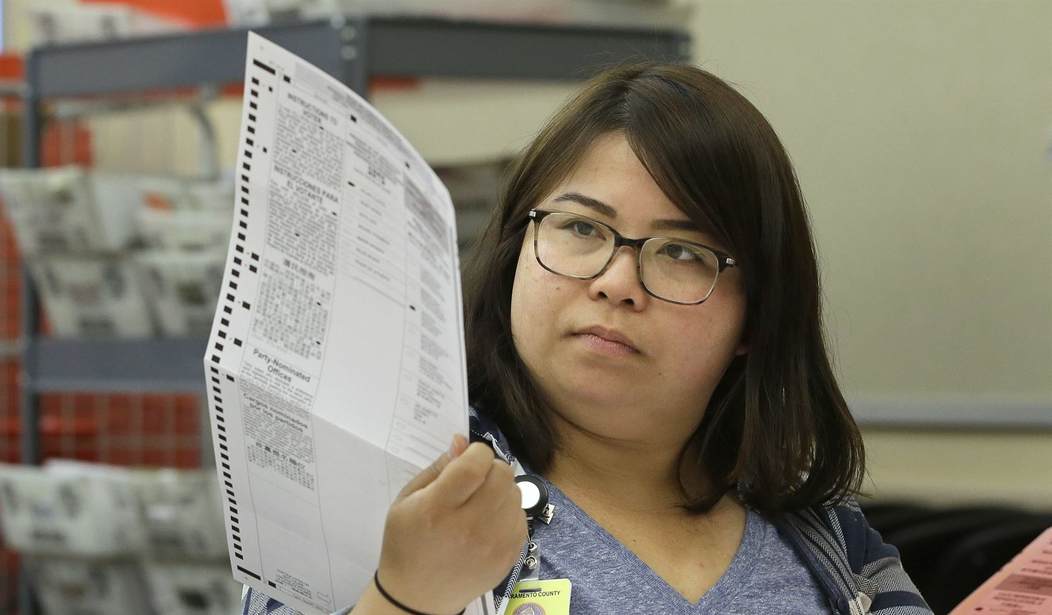The results during the Iowa Caucuses were nothing shy of a mess and a large part of that had to do with the math worksheets used to calculate how delegates were awarded. There appeared to be some rounding errors and confusion about what happens when the number of potential delegates a precinct had versus how many were actually awarded.
Fast forward a few weeks later and we're seeing issues yet again. This time they're somewhat math-based.
According to MSNBC's Steve Kornacki, Democratic voters' initial preferences were for Sen. Bernie Sanders (35 percent), former Vice President Joe Biden (17 percent) and former South Bend, Indiana Mayor Pete Buttigieg (15 percent). Once votes had to be reallocated, Sanders' preference spiked to 42 percent, Biden's jumped to 19 percent and Buttigieg remained the same. Those numbers were based on 10 spotters throughout the state. As of now the Democratic Party has yet to call any precincts.
The National Election Pool, a consortium of various media outlets, have reporters stationed across the Silver State. According to Kornacki, six reporters have reported issues with the caucus process.
"They have reports from six of their reporters, six of their reporters out of 63 sites that they have these reporters at. Six out of 63 or about 10 percent, who have said that they have witnessed issues at precincts with incorporating the early vote with the same-day caucus activity," the MSNBC reporter explained. "Remember, 75,000 early votes cast statewide. They're trying to take those results from folks who voted days ago and merge it with what's happening in real-time with the people who show up and break up with these groups. So at 10 percent of these locations where the National Election Pool has folks witnessing this activity, they say they have been seeing this issue."
Recommended
Kornacki said those issues could be part of the reason the Nevada Democratic Party has failed to call any precincts. The projects are based on spotters who watched the vote take place, recorded the results and called it into the National Election Pool.
"We're able to report [the initial preference] and the second preference but we're not able to report that final delegate total, the key delegate total. That comes from the state party and the state party hasn't given us any precincts yet," he explained.
These are just a few examples of debate and confusion that we know about:
The drama continues here at the #NevadaCaucus at Coronado HS with early voting data and the realignment process - site leader on the phone trying to figure it out ?@FoxNewsMMR? pic.twitter.com/9uW2cMGYnp
— Ben Brown (@bdbrown473) February 22, 2020
Some serious confusion here regarding early voting data #NevadaCaucus pic.twitter.com/eAvOXjRzf3
— Ben Brown (@bdbrown473) February 22, 2020
The room I stationed myself in has turned into a hot mess. Site lead is reviewing. #NevadaCaucus #NVcaucus2020 #NVDemsCaucus pic.twitter.com/66tZHw8xvx
— Jenny Kane (@Jenny_Kane) February 22, 2020
Democrats in disarray: MSNBC reports people are upset amid growing “confusion” at Democrat run caucushttps://t.co/nrgMCGgnnC pic.twitter.com/F10woBPrDy
— RNC Research (@RNCResearch) February 22, 2020
Let's see how this shakes out and if any of the campaigns are going to challenge the results based on those issues.

























Join the conversation as a VIP Member